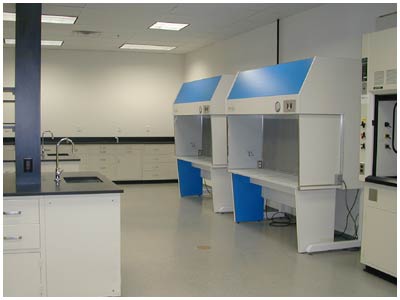July 15, 2002
The
incubator still lives
By Patricia Resende
Mass High Tech
 With laboratory
space and office space still high-priced in the Bay State, startup companies
are looking for a cheaper place to call home.
With laboratory
space and office space still high-priced in the Bay State, startup companies
are looking for a cheaper place to call home.
One example is NanoCat Technologies, a startup that is producing prototypes based on research in the commercial application of nano-structured materials in combustion and emissions reduction.
MIT Professor Jackie Ying, founder of NanoCat, had been searching the real estate market for nearly a year before she told Cummings Properties that it should create a small incubator space for startup companies such as her own.
Cummings Properties took her advice, and today the commercial real estate firm has four incubator suites at 3 Gill St. in Woburn, which it calls its Emerging Technology Center, and is in the process of launching more.
“The Emerging Technology Center meets the needs of an underserved market and has been very well received,” said John Wiseman, leasing manager for Cummings Properties. “A new firm can move in quickly and focus on its business while we focus on the real estate.
“What we did is we picked a size that seemed to work for smaller startups, pulled all the equipment in at our expense, and have the rent cover the expenses over a longer amortization period,” Wiseman said.
He said entrepreneurs have to put a great deal of their seed capital toward research and development and forming of the business, and often can’t afford the expensive lab space.
“They might be able to afford the monthly rent but don’t have the rest to fund the initial capital for the outlay (of equipment).”
Wiseman said NanoCat’s Ying was looking for space but found that some of the offices were “too large and too expensive for her company at its current size.”
Peter DiDomenico, acting chief operating officer and chief financial officer for Lilliputian Systems Inc., said that this week the company will move its founders — two MIT academics — into the new incubator space at Cummings’ Emerging Technology Center, having leased 800 square feet.
Lilliputian Systems has developed a solid fuel cell for use in small handheld devices that will outlive the standard life of a battery and will not need to be recharged for 30 days.
The founders, Alecsander Franz and Samuel Schaevitz, have been working out of their homes since they started the company but needed lab space.
“This space is ideal for us because we are going to be developing a proof of concept,” DiDomenico said.
He said he searched high and low for a small accommodation and found plenty of companies willing to sublease, but the space was never right.
“We looked at subleasing, but it was like finding a needle in a haystack,” he said.
“This was a nice combo. It has a simple lab space connected to a small office.”
Lilliputian executives said the price was right too, for a company that just landed $1.5 million from Atlas Ventures and Rockport Capital Partners.
The four suites at 3 Gill St. include an acid neutralization tank, a 5-foot fume hood, an 8-foot metal casework with resin top, a sink, an emergency shower and interconnecting doors that allow employees to move between suites.
Companies in the incubator space include Cambria BioSciences LLC, a company founded to apply genomic and model organism technologies toward the discovery of novel drugs and chemicals against medical pathogens.
Cummings had such success with the Gill Street incubator space that the real estate company has decided to launch a second emerging technology center at 25 Olympia Ave. in Woburn.
“It’s a similar setup. The suites will have full labs, emergency showers…,” Wiseman said.
The individual incubator suites at 3 Gill St. range from 830 square feet
to 1,050. The Olympia Ave. suites are 1,200 square feet each.